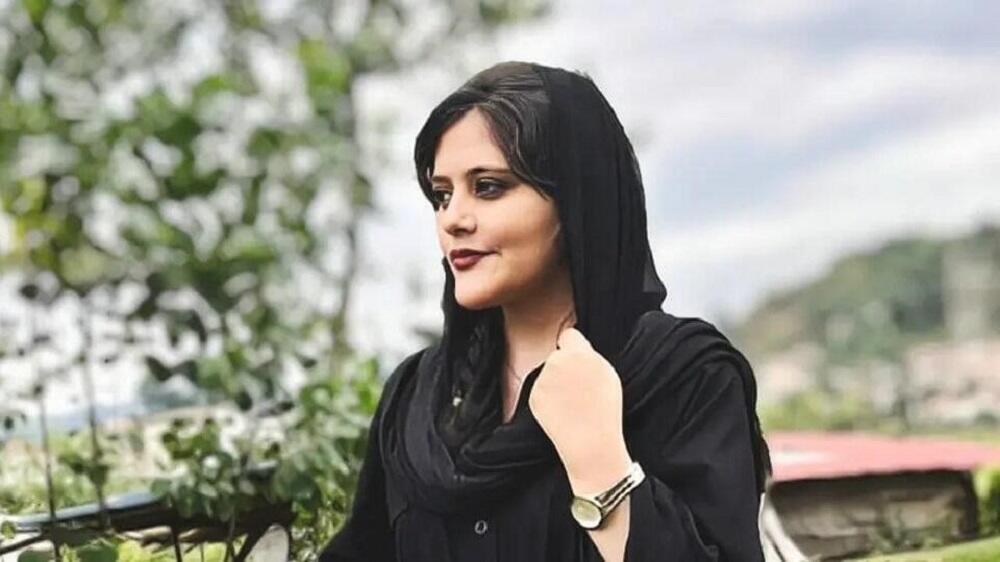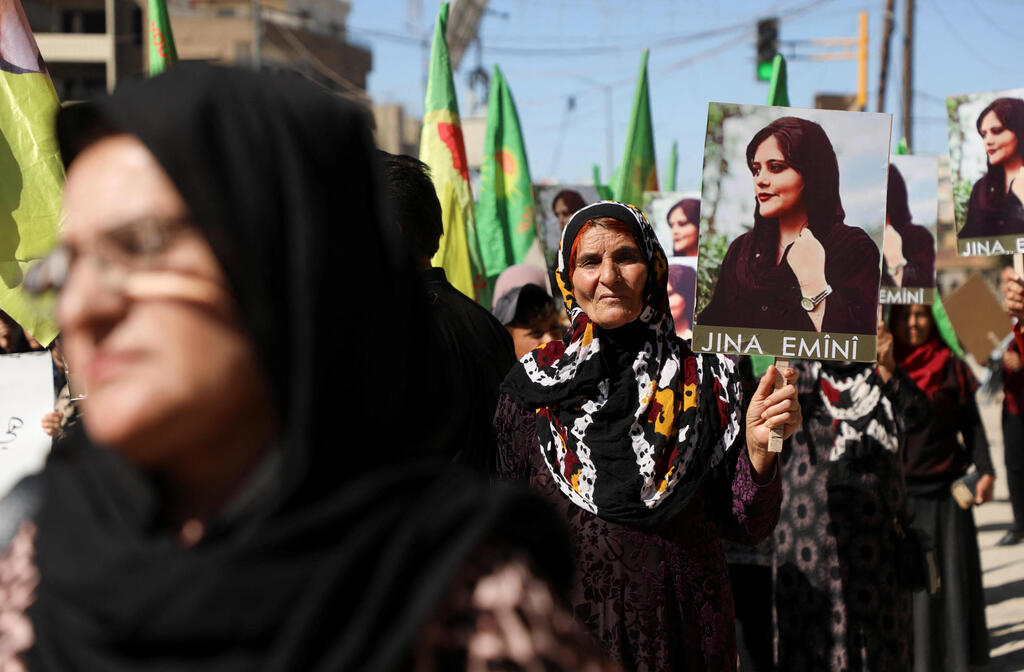Getting your Trinity Audio player ready...
Over the past two years, Iran has witnessed an unrelenting crackdown on its citizens, triggered by the death of 22-year-old Mahsa Amini at the hands of the morality police. The Women, Life, Freedom movement that followed Amini’s death became both a symbol of nationwide resistance and the catalyst for a devastating response from the regime.
According to data provided by the Iran Human Rights organization, at least 166 people were executed in Iranian prisons in November 2024 alone, the highest monthly execution rate since 2007. That number includes four women, 12 Afghan nationals, one Jewish person, and a man with intellectual disabilities.
Since the start of 2024, more than 850 people have been executed in Iran, surpassing the 2023 numbers. More women have been executed in Iran so far in 2024 than in any year in the past decade.
Iran Human Rights founder Mahmood Amiry-Moghaddam told The Media Line that Israel’s assassination of Hezbollah leader Hassan Nasrallah played a role in the increasing rate of Iranian executions.
“Since tensions in the region increased, especially after the killing of Nasrallah, we’ve seen a dramatic rise in executions,” he said. “The regime executed 310 people in two months. Those executed came mostly from marginalized segments of the society and were deprived of fair trial rights.”
Only 4% of November’s executions were officially reported by the regime. “The reports that come out from the Iranian authorities’ side only show a very small part of what is happening,” Amiry-Moghaddam explained. “For instance, official Iranian media announce between 10% and 20% of all executions. Without our numbers, the execution trends wouldn’t even be visible internationally.”
As it stands, the international community is aware of the executions going on in Iran. “The problem is the willingness to act,” Amiry-Moghaddam said. “Human rights don’t have a high priority in international politics.”
He pointed to indifference regarding state-sanctioned oppression of women as another example of international unconcern for human rights abuses. “There is no justification for this,” he said. “The Women, Life, Freedom movement is not just about Iran, it is going against gender apartheid, which has not been recognized internationally as a crime yet.”
3 View gallery


Iranian fans stage protests against the Iranian regime during the World Cup in Qatar
(Photo: Oz Moalem)
In September 2023, the Iranian parliament passed a stricter law requiring women to cover their hair and punishing businesses that serve women with uncovered hair. The regime paused the implementation of the law one week ago, in a move analysts say was meant to prevent widespread protests.
“Pragmatically, the regime sees that the backlash of enforcing the law now would be much higher than in 2022, especially since they’ve lost confidence after recent failures and defeats across the region,” Amiry-Moghaddam said. “Its proxies have suffered major defeats, and the Islamic Republic is weaker than ever. People are aware of it.”
Amiry-Moghaddam and his family left Iran in the 1980s. He was just 11 years old when the family fled, first to Pakistan and then to Norway. His parents thought they would be able to return in a few years once things improved, but that hasn’t happened yet.
His concern for his countrymen led him to establish Iran Human Rights in 2005 to raise awareness of the regime’s brutality.
“It is very risky work. People inside Iran can be arrested for cooperating with us,” he said. “They may be accused of espionage, which could result in severe punishment, even death. For this reason, we use secure platforms and anonymous networks to communicate, ensuring that information cannot be traced back to us or our sources.”
Get the Ynetnews app on your smartphone: Google Play: https://bit.ly/4eJ37pE | Apple App Store: https://bit.ly/3ZL7iNv
Being in regular contact with people on the ground sometimes leads him to forget he’s not in Iran, Amiry-Moghaddam. “Hopefully, even we from the diaspora will be able to go back to our country soon after the regime’s fall, and rebuild everything from scratch,” he said. “In the meantime, we help from here.”
Jeyran and Babak Moghadam are two Iranians who paid the price for trying to protest the regime from within the country.
Originally from Tehran, Jeyran had spent years studying in Spain when she was offered a position as Spanish professor at Tehran University in 2014.
“I got into the university system by pretending to align with the regime, but once inside, I worked to help students challenge their oppression. I gave them texts in Spanish regarding the importance of human rights and the fight against dictatorships. Teaching became my way to inspire the younger generation,” she told The Media Line.
She even organized illegal gatherings with her students to find ways to fight the regime.
One student in her lecture turned out to be a spy, and Jeyran was brought in for questioning by the regime and tortured. “During interrogations, they threatened me and insulted me for hours,” she said. “The last time, they locked me in a cell and crushed my hand inside a door. I suffered not only physical but also mental pain. My hand still hurts every time it rains or gets cold. This was my souvenir from the regime.”
Her husband, Babak, a pediatrician, also went against the regime on multiple occasions. He organized demonstrations with other doctors and treated injured protesters in their home.
“The regime discovered this, and he was taken many times in for questioning, until one day when he disappeared completely, and I didn’t know what happened to him,” Jeyran said. “After a week, he came home, and by his face, I could tell he was beaten harshly. He was dumped in the desert, barefoot, and he was forced to walk home. Yet he continued his activism.”
Jeyran was offered a teaching position in Germany through a program aimed at hiring professors whose lives are in danger. She left Iran on August 8, 2023, and hasn’t returned since.
'Two years have passed. I believe freedom is near, even though the road ahead will be tough. I hope the people of Iran may kick out the regime, as Syrians recently did.'
“I had to decide immediately, pack my life in weeks, and leave everything behind,” she said. “My life was at stake in Iran, and I needed to take this opportunity and bring my husband with me.”
Babak was set to be arrested again before their flight, and the regime tried to prevent him from leaving the country. Protests broke out at the airport, and he and Jeyran were able to safely board the plane.
“It was a miracle he escaped, but the regime promised that once he sets foot in Iran, he will be arrested for sure,” Jeyran said.
The couple have been living in Germany for more than a year now, but both still have family members in Iran. “My husband received threatening calls while he was staying here and our family members as well,” Jeyran said. “Despite that, we and our families are all willing to face the consequences to advocate for what is right.”
Jeyran entered Germany legally, but her Iranian passport has now expired, and she is unable to request a new one from the regime. “I am effectively stateless, unable to leave or travel,” she said. In addition, Babak is burdened with the bureaucratic headache of life as a refugee, despite both him and Jeyran having stable jobs.
Despite the challenges of life in exile, Jeyran has hope for a better future.
“I gave the regime four to five years when Mahsa Amini’s murder ignited the protests,” Jeyran said. “Two years have passed. I believe freedom is near, even though the road ahead will be tough. I hope the people of Iran may kick out the regime, as Syrians recently did.”



